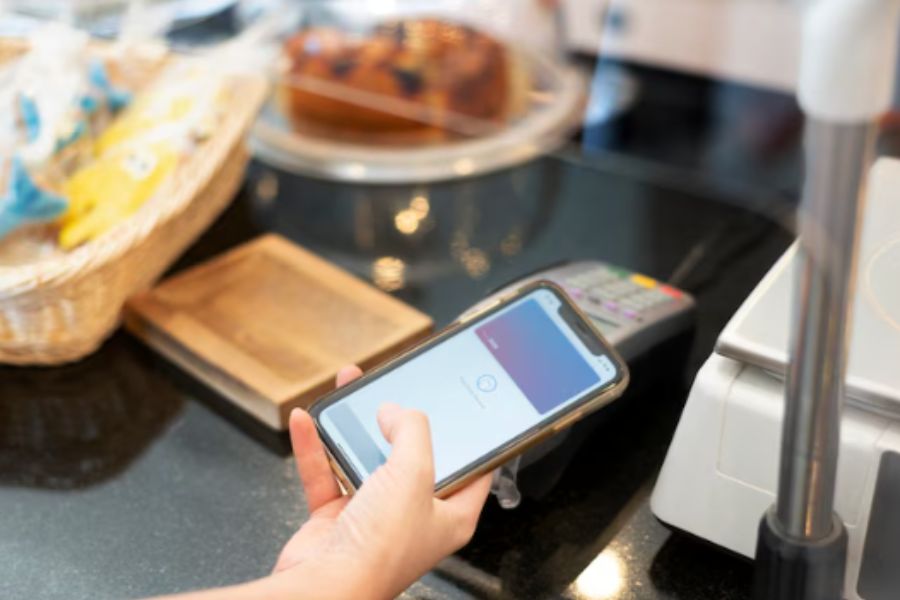Running a business comes with its challenges, and that’s why we continue to explore new strategies and tools to stay ahead in the commerce industry. In past discussions, we’ve covered essential topics like managing multiple stores, optimizing checkout processes, and overseeing staff remotely. Today, we’ll dive into an equally important aspect — quote management in POS. What exactly is a quote, and how can managing quotes through your POS system streamline your operations? Together, we’ll explore these questions and uncover the key benefits of effective quote management for your business.
Why is Quote Management Important for Sellers?
A quote reflects the agreed-upon price between a buyer and a seller, giving both parties clarity on the cost of products or services.
For sellers, presenting well-managed quotes ensures potential customers understand the value they are receiving, helping to foster trust and increase the likelihood of closing sales. In addition, managing quotes through a point-of-sale (POS) system keeps everything organized, allowing sellers to maintain consistency in pricing and avoid errors.
Since quotes often lock in a fixed price for a product or service, managing them correctly is key to maintaining profitability while offering competitive pricing.
How Do Sellers Calculate the Sale Price for a Quote?
Calculating the sale price for a quote is a multi-step process that ensures both profitability and competitiveness.
Sellers start by determining the total production costs, which include expenses like labor, raw materials, overhead, and shipping. On top of these costs, a markup is applied to account for profit margin. Its mission is to ensure that the seller covers costs while making a profit.
However, simply adding a markup isn’t enough—other factors come into play. Sellers also consider market conditions, customer demand, competitor pricing, and even the specific needs of the customer. Discounts, seasonal promotions, or bulk purchasing agreements may further influence the final sale price. The result is a carefully calculated quote that reflects the product’s value and aligns with the seller’s business strategy.
What is Quote Management in POS Systems?
Quote management in POS systems refers to the process of creating, tracking, and managing price quotes directly through a POS platform. Sellers can quickly generate accurate, real-time quotes for customers, often based on factors like product availability, pricing rules, and customer-specific terms using this system. Instead of manually handling quotes, sellers can use the system to streamline the entire process—from the initial price offer to the customer’s final approval.
How does it work?
When a customer requests a quote, the POS system pulls relevant data such as product details, inventory levels, and pricing rules to generate a quote instantly. Sellers can customize the quote by adding discounts, taxes, or other terms specific to the customer.
Once the quote is generated, it can be easily tracked within the POS system, so sellers can follow up, make adjustments, or convert the quote into an actual sale. Real-time updates ensure that quotes are always in sync with current inventory and pricing, reducing the risk of errors. Moreover, the system might include some features such as automatic quote expiration, reminders for follow-ups, and detailed reporting to monitor quote performance over time.
What to Include in a Quote?
Common elements of a quote
A well-crafted quote provides clarity and sets the foundation for a potential business transaction. While the exact details may vary depending on the nature of the industry, there are some common elements that every quote should include:
- Product or Service Description: Clearly specify the items or services being quoted. This helps the customer understand exactly what they are paying for, including any unique features or specifications.
- Unit Price and Total Cost: Break down the cost per unit or service, and then provide the total price. If there are multiple items, ensure that each line item is individually priced.
- Taxes and Additional Fees: Include any applicable taxes, such as VAT or GST, and other charges like shipping or handling fees. Transparency here ensures that the customer knows the full cost upfront.
- Discounts or Special Offers: If any discounts or promotions are being applied, clearly state them in the quote. This could include bulk discounts or seasonal promos.
- Payment Terms: Outline the payment methods you accept, along with the payment due date or installment options. Specify whether payment is due upfront, on delivery, or within a certain period.
- Delivery or Fulfillment Details: Provide information about when and how the products or services will be delivered or fulfilled, along with any associated charges or timelines.
- Expiration Date of the Quote: Quotes are often time-sensitive, so including an expiration date ensures both parties understand the validity period of the offer.
- Terms and Conditions: Mention key policies such as return or cancellation terms, warranty information, or any other contractual obligations.
Industry-specific considerations
- Retail
In the retail sector, quotes often need to include SKU numbers, product variants (like size or color), and stock availability. If you’re offering bulk purchase discounts or loyalty program benefits, make sure to highlight those.
- Grocery
For grocery stores, itemized lists with weights, quantities, and per-unit pricing are key. Including perishable item details, delivery windows (if applicable), and any special handling fees (e.g., for chilled goods) is also important.
- Apparel
In the fashion industry, quotes should include detailed product descriptions such as fabric type, size, color, and any customization options. Also, mentioning return policies or exchange terms is crucial for apparel.
- Home Décor and Furniture
Quotes in this sector might need to include additional services like delivery, installation, or customization fees. For larger items, it’s good practice to specify lead times for manufacturing or delivery.
- Vape/CBD
Quotes should clearly specify the product’s ingredients, strength (e.g., CBD concentration), and any legal disclaimers required by local regulations. It’s also important to include any age verification or compliance details and shipping restrictions for specific regions. If offering subscription services or bulk discounts for regular customers, highlight these in the quote.
- Firearms
For firearms, quotes must include detailed product specifications like make, model, caliber, and accessories (e.g., scopes, cases, or ammunition). Legal compliance is critical, so the quote should outline background check requirements, licensing information, and waiting periods. Shipping or in-store pickup options and any associated fees for paperwork and transfer processes should be clearly stated.
Best Practices for Managing Quotes in POS
There are several ways to improve quote management in a POS system, each addressing key aspects like accuracy, efficiency, and customer engagement.
- Automate the Quote Process: Leverage automation features in your POS system to generate accurate, standardized quotes quickly. This minimizes manual errors and saves valuable time for both your team and customers.
- Keep Quotes Current: Quotes should always reflect real-time inventory and pricing. Make sure your POS system syncs with up-to-date data to avoid discrepancies and maintain transparency with customers.
- Set Expiration Dates: Always include a time frame for quote validity. Expiration dates create a sense of urgency for customers, while also protecting your business from changes in pricing or inventory. Most POS systems support automated expiration setups.
- Personalize Quotes for Different Customers: Tailor quotes based on customer purchase history, loyalty status, or special promotions. Using customer data stored in your POS system allows you to offer a personalized experience, which can significantly improve conversion rates.
- Track and Follow Up on Quotes: Implement a system to monitor the status of each quote—whether it’s pending, accepted, or expired. Many POS systems offer features to set reminders or automate follow-ups with customers, ensuring no opportunity is missed.
- Offer Flexible Payment and Delivery Options: Present clear payment terms and delivery choices within the quote. Flexible payment plans or installment options, handled directly through your POS system, can encourage customers to move forward with their purchase.
- Analyze Quote Performance with Reports: Use reporting features in your POS to examine the performance of your quotes over time. Measure key data points such as quote acceptance rates, average quote value, and customer response times. These insights help you refine your quoting strategy and boost overall efficiency.
ConnectPOS is a comprehensive point-of-sale solution designed to help retailers streamline their operations and enhance customer experiences. As part of its complete suite of tools, ConnectPOS includes an essential quote management system to ensure that quotes are accurate and up-to-date. Along with its quote management capabilities, ConnectPOS supports multi-store management, mobile POS, and seamless integration with leading eCommerce platforms, making it a robust and flexible software solution for retailers of all sizes.
Final words
In conclusion, while quote management in POS offers significant benefits—such as streamlining operations and improving customer interactions—it’s important to be aware of potential challenges like inconsistent pricing or outdated inventory data. To avoid these issues, adopting best practices like real-time syncing, setting clear expiration dates on quotes, and regularly reviewing quote performance can help maintain accuracy and efficiency. businesses can leverage their POS system to manage quotes effectively and enhance overall sales processes and customer satisfaction.
For a more efficient and seamless sales process, get in touch with ConnectPOS and discover how our solution can elevate your business.



